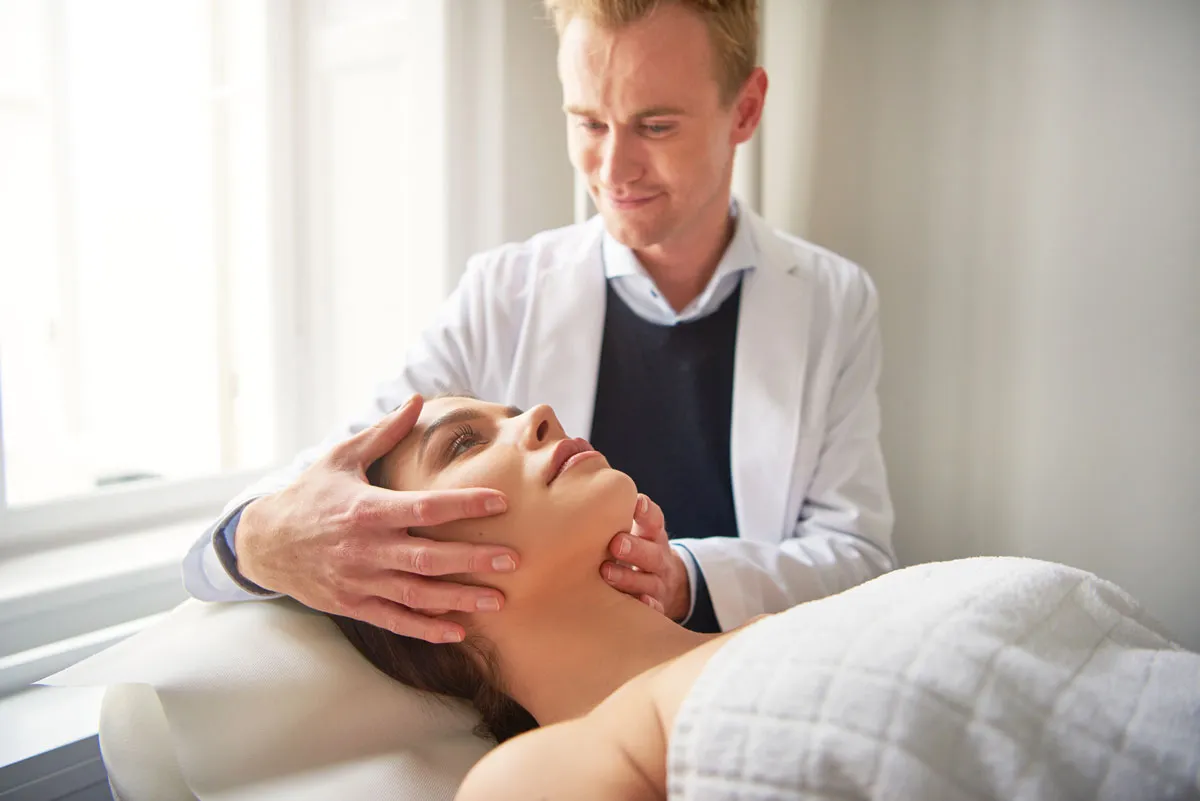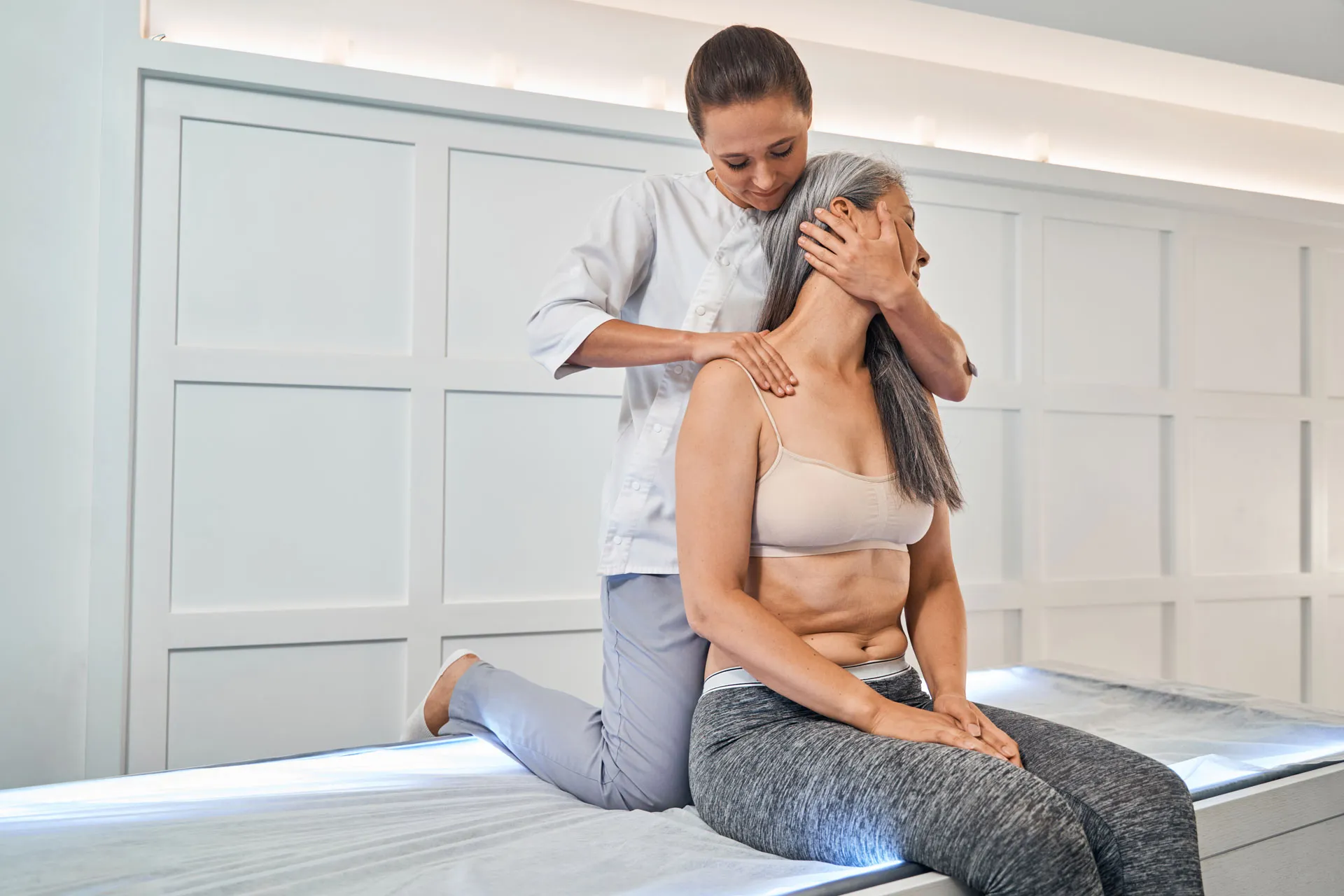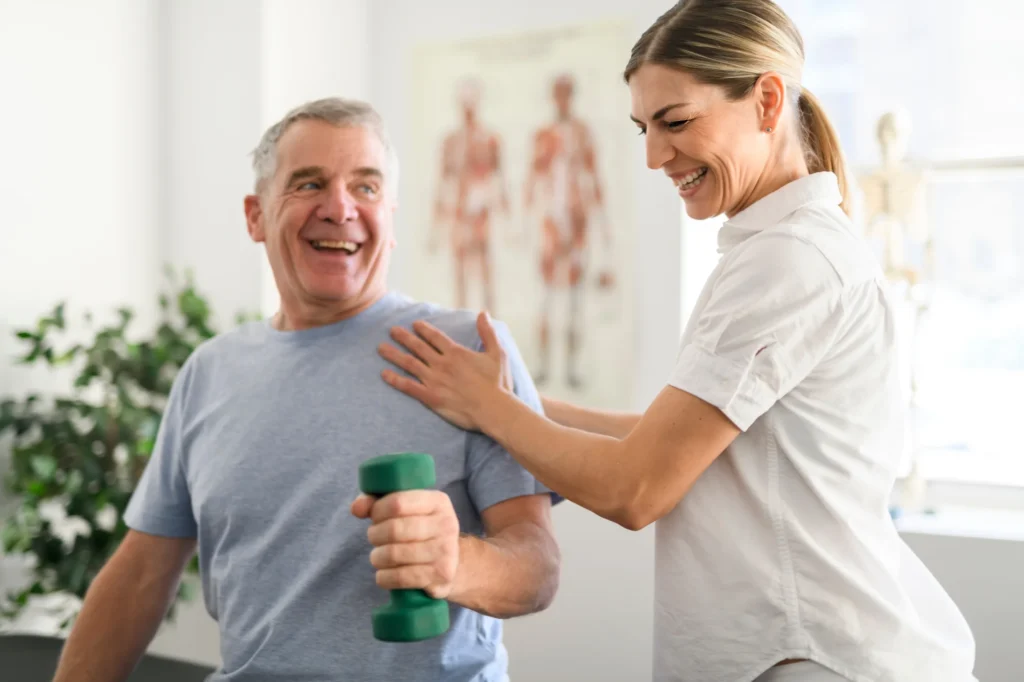Camberley Osteopathy
Expert Osteopath Treatment in Camberley
Experience pain relief and improve mobility through expert treatment at Camberley Osteopathic Clinic.
To an osteopath, for your body to work well, its structure must also work well. So osteopaths work to restore your body to a state of balance, where possible without the use of drugs or surgery.
Osteopaths use touch, physical manipulation, stretching and massage to increase the mobility of joints, to relieve muscle tension, to enhance the blood and nerve supply to tissues, and to help your body’s own healing mechanisms.
They may also provide advice on posture and exercise to aid recovery, promote health and prevent symptoms recurring. (www.osteopathy.org.uk)


What We Treat
Osteopathy can help with such a vast array of problems that we have highlighted just a few below which are perhaps some of the most commonly seen conditions/symptoms presented to us daily.
- Headaches/Migraines
- Pins & Needles
- Stiffness/restricted movement
- Disc problems
- Joint problems
- Tennis/golfers elbow
- Repetitive strain injury
- Tendonitis
- Sports injuries
- Chronic muscular tension
- Back pain
- Numbness
- Sciatica
Frequently Asked Questions
What training and qualifications do osteopaths have?
All osteopaths receive training at colleges approved by the General Osteopathic Council (GOsC). These 4-5 year courses cover a very wide range of subjects including anatomy, physiology, pathology, clinical methodology, biomechanics, osteology, cardiovascular and gastro-intestinal studies and osteopathic techniques. These subjects are all necessary to ensure osteopaths can act as Primary Care Physicians.
This means we are trained to diagnose not only bio-mechanical problems but have a good grounding in general medicine. This enables us to assess whether your problem is suitable for osteopathic treatment or whether you need to be referred to your doctor or a specialist.
All trainee osteopaths are required to spend many hours treating patients under the supervision of qualified clinical tutors and only qualify after rigorous final examinations. The title osteopath is protected by law now and all osteopaths are registered with the GOsC.
Should I see a doctor first?
How will you know what is wrong with me?
What will my doctor think of me seeing an osteopath?
Should I bring my x-rays or MRI scans with me?
What should I wear when I come in for treatment?
You may be asked to remove some clothing, depending on the area that requires examination. Patients are welcome to wear shorts with elasticated waistbands if they feel more comfortable and if you would like a friend or relative to be in with you during examination and treatment we are very happy to do so. Should you request not to remove items of clothing your osteopath will still be more than happy to assess you however, it is important to note it may mean the assessment is more limited.
Does treatment hurt?
Treatment can be uncomfortable for brief periods of time, but we always keep this to a minimum and make sure you are happy with the level of discomfort you feel. However, the majority of the treatment is painless. There is often a period of time after treatment when you may feel achy or sore, and this may be felt for around 48 hours after your visit.
How long do consultations and treatments last?
Our consultations last half an hour. On your first visit, more of this time is used for a case history and examination, but subsequent visits usually comprise of a brief check on any examination changes and then you will receive up to 25 minutes of treatment. The number of treatments you require depends on the severity and nature of your condition, your age, state of health and often level of fitness. You may only need one visit, but more commonly several sessions will be necessary. We should be able to give you some idea of how quickly it will progress after we have seen you on one or two occasions.
Do osteopaths treat just backs?
No. Osteopaths treat the whole body. Any injury or pain felt in the body’s framework, (joints, muscles, ligaments, tendons, etc) can be treated by an osteopath.
